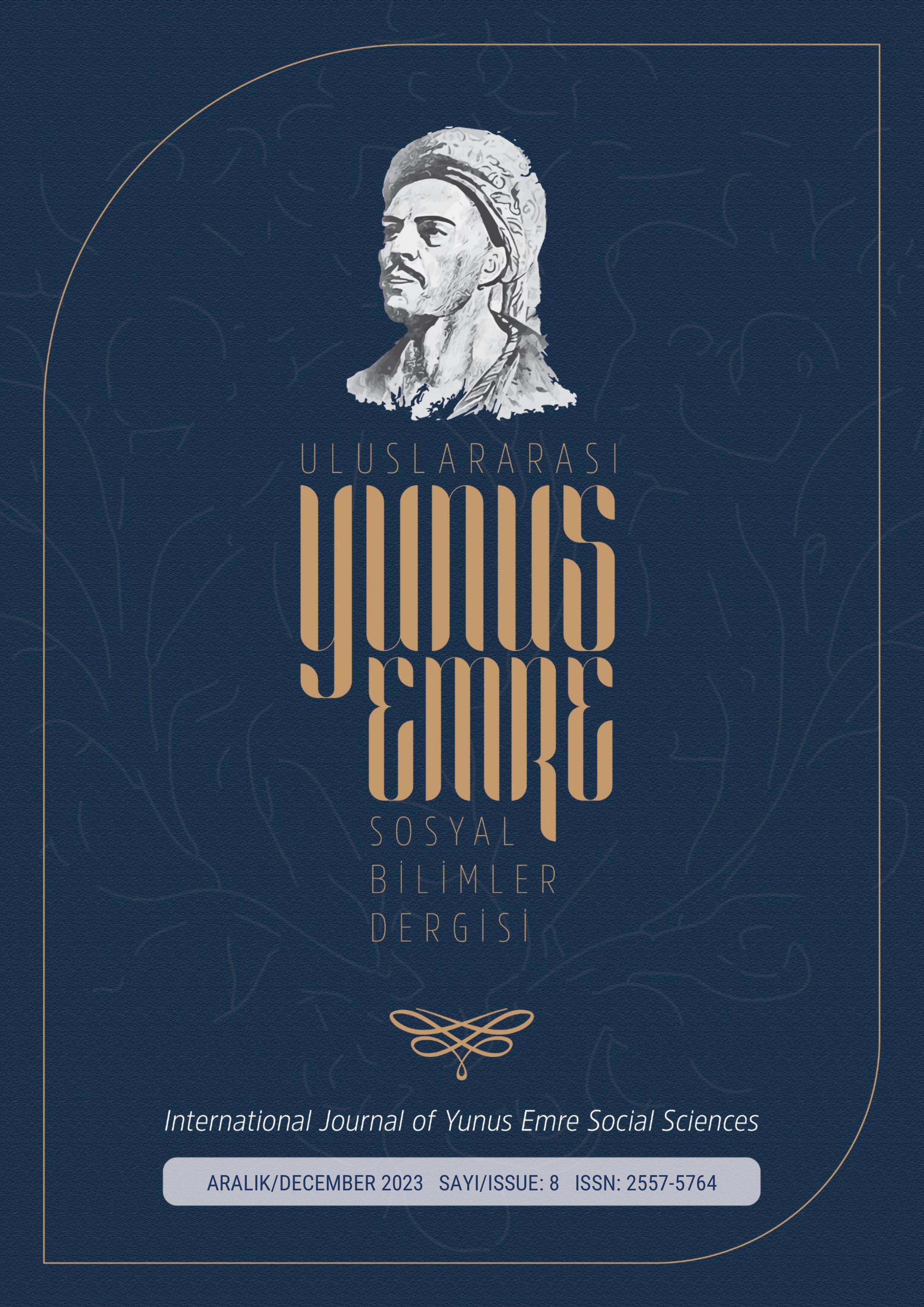Author :
Abstract
Özet
Divan Edebiyatı 13. Yüzyıldan 19. Yüzyıla kadar altı asır boyunca devam etmiş ve kültürümüzün önemli bir parçasını oluşturmuştur. Divan Edebiyatından günümüze edebiyatla birlikte diğer sanatlara; tarihe, şahsiyetlere ve bunun gibi birçok konuya kaynaklık edecek pek çok eser kalmıştır. Geniş bir muhtevaya ve yer yer ağdalı bir dile sahip olan Divan şiiri günümüzde anlaşılırlığını yitirmiştir. Divan edebiyatı dönemine ait eserlerin günümüzde tam anlamıyla anlaşılabilmesi için eserin yazıldığı dönemdeki kültür geleneği göz önünde bulundurularak kelimelerin anlamsal olarak ele alınıp açıklanması önemli bir yer tutmaktadır. Eserlerde yer alan kelimelerin her birinin anlamına göre değerlendirilmesi; şairlerin duygu ve düşünce dünyasının, dilin kelime dünyasına kattığı zenginliklerin ortaya çıkarılması eserlerin anlaşılmasına yardımcı olacaktır. Bu bağlam göz önünde bulundurularak çalışmada 19. yüzyılın ikinci yarısında yaşamış Rîzî Divanı incelenmiş ve şiirlerini oluşturduğu kelimeler ele alınmıştır. Şairin şiirlerinin anlaşılması için öncelikle onun duygu dünyası anlaşılmaya çalışılmıştır. Çalışmanın ilk kısmında şairin olaylar ve durumlar karşısındaki psikolojisini ifade eden (sevinç korku üzüntü vs.) kelimeler tespit edilmiş; ikinci kısmında ise eylem ve durum tasviri ifade eden ağlama, hastalık-ölüm, sarhoşluk, uyku vd. kelimeler tespit edilmiştir.
Keywords
Abstract
Abstract
Divan Literature continued for six centuries from the 13th century to the 19th century and formed an important part of our culture. From Divan Literature to the present day, there are many works of literature as well as other arts, history, personalities and many other subjects. Divan poetry, which has a wide content and sometimes a thick language, has lost its comprehensibility today. In order for the works of Divan literature period to be fully understood today, it is important to consider and explain the words semantically, taking into account the cultural tradition of the period in which the work was written. Evaluating each of the words in the works according to their meanings, revealing the world of emotion and thought of the poets and the richness of the language added to the world of words will help to understand the works. Considering this context, the study analyzed Rîzî Divan, who lived in the second half of the 19th century, and examined the words of his poems. In order to understand the poet's poems, first of all, his emotional world was tried to be understood. In the first part of the study, words expressing the poet's psychology in the face of events and situations (joy, fear, sadness, etc.) were identified; in the second part of the study, words expressing action and situation depiction such as crying, illness-death, intoxication, sleep, etc. were identified.





